Iraq Situation Report: February 23 - 29, 2016
February 29, 2016 - Patrick Martin
ISIS conducted a large-scale campaign against civilian and military targets across Iraq between February 25 and February 29.

ISIS conducted a large-scale campaign against civilian and military targets across Iraq between February 25 and February 29.

Russia has continued its air campaign in support of Syrian President Bashar al-Assad, despite the ongoing cessation of hostilities agreement that began on February 27. Russian airstrikes concentrated in opposition-held areas of northwestern Syria on February 28, following a lull in Russian airstrikes on February 27.
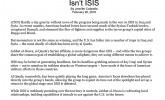
(CNN) Hardly a day goes by without news of the progress being made in the war on ISIS in Iraq and Syria. In recent months, American-backed forces have secured much of the Syrian-Turkish border, recaptured Ramadi, and stemmed the flow of fighters and supplies to the terror group's capital cities of Raqqa and Mosul.
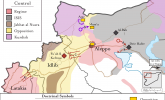
The expanded interventions of Russia and Iran into the Syrian Civil War have shifted the trajectory of the conflict in favor of Syrian President Bashar al-Assad, granting him the strongest position on the battlefield as of February 24, 2016. Regime forces bolstered by Iranian ground troops and Russian air support have achieved major gains against both the Syrian armed opposition and ISIS in Northern Syria since September 2015, marking a fundamental shift in battlefield momentum following a compounding series of regime losses in the first half of 2015.
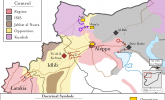
The expanded interventions of Russia and Iran into the Syrian Civil War have shifted the trajectory of the conflict in favor of Syrian President Bashar al-Assad, granting him the strongest position on the battlefield as of February 24, 2016.
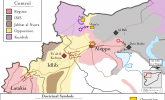
The expanded interventions of Russia and Iran into the Syrian Civil War have shifted the trajectory of the conflict in favor of Syrian President Bashar al-Assad, granting him the strongest position on the battlefield as of February 24, 2016.
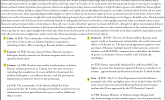
Russia is reshaping the balance of military power in the Middle East and Black Sea region even as it faces potential defense budget cuts. Low oil prices and Western sanctions have caused a prolonged economic crisis in Russia, leading to new proposals for a 5 percent cut in the 2016 military budget. Russia continued efforts to offset the effects of low oil prices and Western sanctions by marketing its military hardware in the Middle East and Asia.
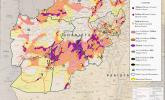
Security in Afghanistan has been deteriorating since U.S. force levels dropped from a high of 100,000 in 2011 to the current force size of 9,800 they reached in June 2014. Lt. Gen. John W. “Mick” Nicholson, the incoming commander of Operation Resolute Support and U.S. Forces in Afghanistan, agreed with the remark that “the security situation in Afghanistan has been deteriorating rather than improving” in a Senate Armed Services Committee (SASC) hearing on January 28.